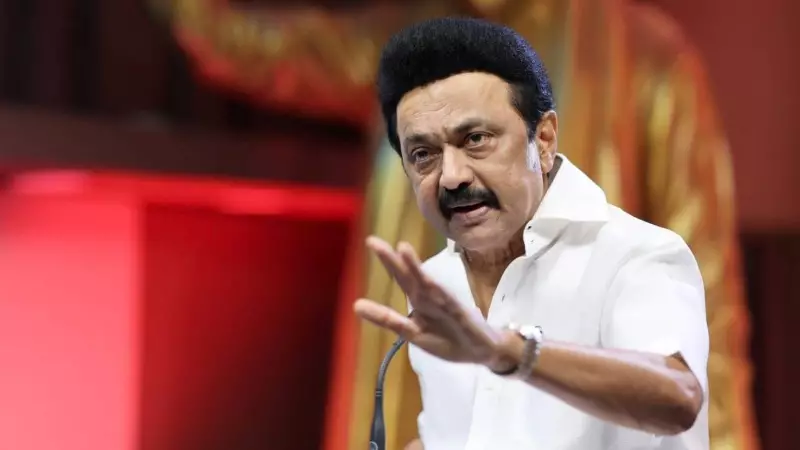
Tamil Nadu Chief Minister M K Stalin has declared an unwavering commitment to continue the battle for state rights and true federalism, emphasizing that elected governments must remain in the driver's seat when it comes to decision-making processes. The Chief Minister's strong statements came a day after the Supreme Court delivered its advisory opinion on the Presidential Reference concerning Governors' powers regarding Bill assent.
Constitutional Amendment Demand
Stalin made it clear that he will not rest until the Constitution is amended to establish specific timelines for Governors to clear Bills sent by state legislatures. The CM asserted that Governors cannot exercise pocket veto powers or kill legislation through indefinite delays, referring specifically to the actions taken by Tamil Nadu Governor R N Ravi regarding pending Bills.
Taking to social media platform X, Stalin outlined his position clearly, stating that the Supreme Court bench delivering the advisory opinion has reaffirmed the principle that elected governments should hold primary executive power, and there cannot be two competing power centers within a state. He emphasized that all constitutional functionaries must operate within the constitutional framework and never consider themselves above it.
Supreme Court's Advisory Opinion Impact
Regarding the Supreme Court's recently delivered advisory opinion, Stalin stated categorically that it will have no impact on the April 8, 2025 judgment in the landmark case of State of Tamil Nadu vs Governor of Tamil Nadu. He referenced the nine-judge bench ruling in Ahmedabad St. Xavier's College Society vs State of Gujarat, noting that an advisory opinion of the court carries no more weight than the opinion of law officers.
The Chief Minister welcomed the court's position that Governors cannot indefinitely delay acting on Bills and that states can approach Constitutional Courts to hold Governors accountable for deliberate inactions. He stated that the Supreme Court's view effectively rejects the Governor's theory of pocket veto and the notion that Bills can be killed or buried by Raj Bhavan.
Constitutional Framework and Accountability
Stalin emphasized a fundamental constitutional principle that no constitutional authority can claim to be above the Constitution itself. He warned that when high constitutional authorities breach constitutional provisions, the only remedy lies through constitutional courts, and these judicial doors must remain open to preserve democratic values.
The CM expressed concern that closing judicial avenues would undermine the rule of law in India's constitutional democracy and potentially encourage further constitutional breaches by Governors acting with political motivations. He stressed the importance of maintaining proper checks and balances within the constitutional framework.
Stalin concluded with a powerful statement of commitment: "I have promises to keep, and until our people's will in Tamil Nadu is fulfilled through legislation, we will ensure that every constitutional apparatus functions in this country in accordance with the Constitution." This declaration underscores his determination to pursue constitutional reforms that would prevent future delays in gubernatorial assent to state legislation.






